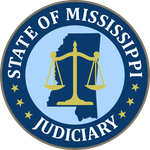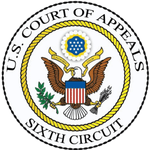
NEWS (8/27/20) — Mississippi: The Mississippi Supreme Court overturned the conviction and death sentence of Eddie Lee Howard based on new DNA evidence and the unreliability of bite-mark testimony used at Howard’s trial. The court’s 8 – 1 decision reversed an earlier decision of the trial court that had denied Howard a new trial. The appeals court ruled that the evidence presented to the trial court undermined the trial testimony of forensic odontologist Dr. Michael West, who claimed that Howard’s bite marks “indeed and without doubt” were present on the victim’s body.
During post-conviction proceedings, Howard’s counsel introduced new evidence that Howard’s DNA was not present in any of the samples taken from the victim’s body, her clothing, her bedsheets, or the murder weapon. Analysts concluded that one of the samples from the murder weapon contained the DNA of an unidentified man who was not Howard. Counsel also presented evidence that the American Board of Forensic Odontology (ABFO) had changed its guidelines in 2013 and 2016, now explicitly prohibiting forensic odontologists from identifying bite marks as belonging to a particular person. It noted that Dr. West had emphasized his adherence to ABFO practices to gain the confidence of the jury at trial, but had since been reprimanded by the organization for violating its guidelines. The Court ruled that Dr. West’s identification testimony lacked a scientific basis and was inadmissible. Finding that testimony inadmissible, it held that the new DNA evidence and the lack of other evidence tying Howard to the crime required setting the conviction aside.
The Court also noted that Dr. West’s testimony in other cases had led to the wrongful convictions of death row exoneree Kennedy Brewer and his co-defendant Levon Brooks.

NEWS (8/25/20) — Kentucky: In a 2 – 1 decision, the U.S. Court of Appeals for the Sixth Circuit Court affirmed a federal district court’s denial of habeas relief to Kentucky death-row prisoner Victor Dewayne Taylor. Taylor had argued that he was entitled to a new trial because Jefferson County prosecutors discriminatorily exercised their discretionary jury strikes to remove African Americans from serving on his jury. Taylor’s lawyer objected to four of the strikes against Black jurors.
The Sixth Circuit panel ruled that the Kentucky Supreme Court had not acted unreasonably in denying Taylor’s jury discrimination claim and his claim that trial counsel had provided ineffective representation with respect to the jury challenges.